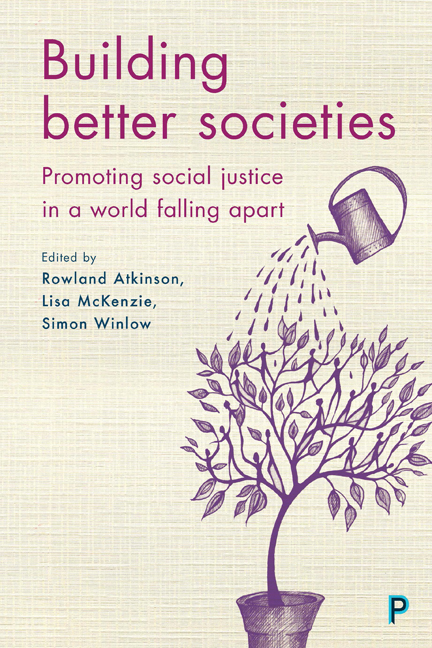Twelve - Policy steps towards a better social future
Published online by Cambridge University Press: 05 April 2022
Summary
This chapter reflects on a possible vision of a more progressive future, doing so by focusing on a widely acknowledged contemporary problem – socioeconomic insecurity – and concrete, practical policy steps to seek its redress. Put more positively, it is about building a social and economic framework grounded in security, and it is from that starting point that a better future can be imagined.
The chapter is in four parts. First, the extent and effects of insecurity are considered, both in terms of insecurity as a tangible experience in relation to issues such as employment, household finances and housing, but also speaking to worry, anxiety and the sense that things are just not right. Second, the approach to identifying solutions to insecurity is discussed, with particular emphasis on pragmatism and drawing on ideas from across the political spectrum. Third, policy steps for redressing insecurity are presented under three headings: housing, children and income. Fourth, the concluding discussion reflects on a vision of a more progressive future that flows from the redress of insecurity.
The extent and effects of insecurity
Insecurity is a hallmark of our times. For example, being in paid employment and on an average income is no longer a guarantee of being financially secure – three-quarters of middle and lower-income families are unable to afford the mortgage on a local three-bedroom home; stress and anxiety have become a cultural condition with mental health problems costing the economy a staggering £105 billion per year; and zero hours contracts are the tip of the insecure employment iceberg, with middle-class employment becoming more like that long endured by the working class. The recession may perhaps be over, but we are experiencing what The Economist calls a ‘joyless recovery’; despite improvements in economic indicators, the benefits of growth are only being enjoyed by some, not all. The UK has been described as a 5–75–20 society – a 5 per cent elite, 75 per cent who are the new insecure, and 20 per cent who are poor and marginalised.
The causes of insecurity lie within neoliberalism which, as has been discussed in previous chapters, has been the dominant political economy of the last 30 to 40 years.
- Type
- Chapter
- Information
- Building Better SocietiesPromoting Social Justice in a World Falling Apart, pp. 155 - 164Publisher: Bristol University PressPrint publication year: 2017



